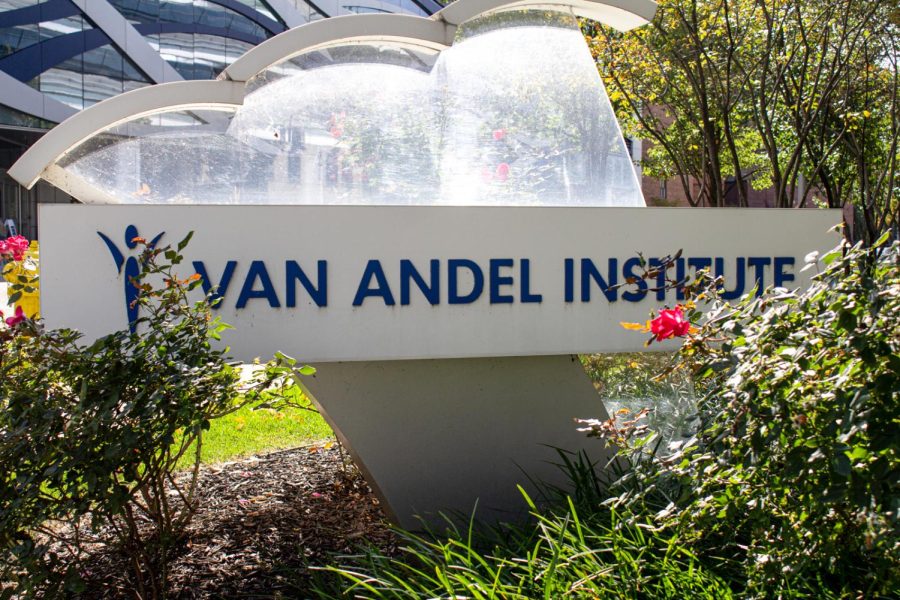GV receives $200,000 grant for data project alongside Van Andel Institute
Oct 17, 2022
Grand Valley State University was recently awarded a $200,000 grant from the Chan-Zuckerberg Initiative to contribute to the development of a joint project alongside the Van Andel Institute (VAI) aimed at making scientific data more easily obtainable and storable for researchers.
Researchers can have a difficult time storing massive data outputs involved with finding answers to humanity’s most pressing questions. These data outputs can hold the answers for which researchers have been searching, such as information about prevalent diseases. However, these answers are buried deep within a large amount of data. The massive data outputs make it difficult for researchers to analyze the data within and share it with other researchers around the world.
Dr. Zachary DeBruine is an assistant professor of bioinformatics at GVSU and adjunct professor at the VAI. While researching big models of genomics and biology data, he and the team began to run out of Random Access Memory (RAM) on their computers.
“We realized that there were two approaches to solving this issue: one, a brute-force approach that involves connecting many more computers to solve the issue, or two, making big data smaller,” DeBruine said.
The goal of the project was to develop software packages with machine learning algorithms that can be stored on a hard drive rather than in RAM to reduce the size of the data being analyzed.
The team found a way to make the large data outputs smaller and more accessible. They were also able to make the data easier to read once it has been compressed.
“This is kind of like zipping a file to take up less space, then using and reading it without ever unzipping it,” DeBruine said.
A job that usually requires high-performance computers and plenty of RAM storage can now be made more accessible to researchers everywhere.
“We found a way to compress many types of big data by almost 50%, and then read it without ever uncompressing it,” DeBruine said. “I thought it was a compelling finding, so we decided to write a grant proposal.”
The grant proposal proved to be successful as the project received $200,000 in support. DeBruine said the approval of this proposal was largely due to the advantages the team had.
They were surrounded by the right people to make this happen, and there happened to be an overlap between what the team wanted to do and what the funding agency wanted them to do.
They also had the advantage of the connections they’d formed with other researchers that aided in developing the data project.
“I continue to be amazed by how important it has been to involve other successful researchers who have helped to make the work possible and provide valuable feedback,” DeBruine said.
The Chan-Zuckerberg grant will provide GVSU and VAI with the funding they need to develop this project further. The project will aid in the analysis of crucial research.
“The immediate goals are to use these better compressions of big data to learn models of data that were previously too large to analyze, such as millions of whole genome sequences and tens of millions of single-cell transcriptomes,” DeBruine said.
The project only has room to grow from here and the recently awarded grant will ensure that this project will continue to revolutionize data analysis.
“This work broadly intersects recent developments in cloud-scale high-performance computing and data compression, so it will be interesting to see what creative space there is for further development,” DeBruine said.
Dr. Tim Triche, VAI assistant professor and the grant’s lead investigator, sees a promising future in this data project.
“Providing a fast, scalable and easy-to-understand representation for complicated biological processes at single-cell resolution really ought to democratize discovery of novel biology and allow anyone with the inclination to participate,” Triche said.
As the project continues to support important analysis of large data outputs, the $200,000 grant will provide VAI and GVSU with the funding they need to expand access of data analysis and discover the answers to the questions researchers have been asking.






















